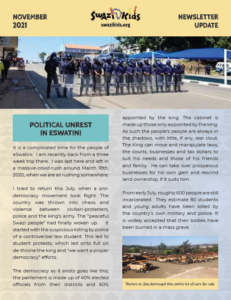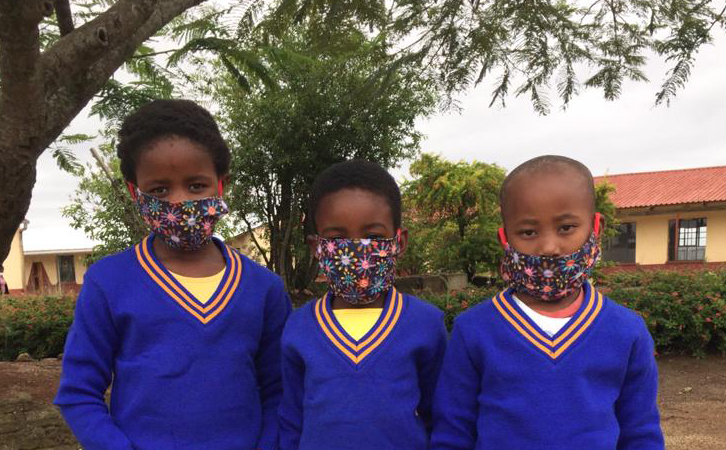
Please read the November 2021 Newsletter with details on how things are going in eSwatini at this time. Click on the image to view PDF.
The request for help with food aid during this time remains. If helping families, (as the Covid and economic situation continue), is where you would like to donate, click the button below.
Help families in need.
May 2020 Update – Videos from eSwatini
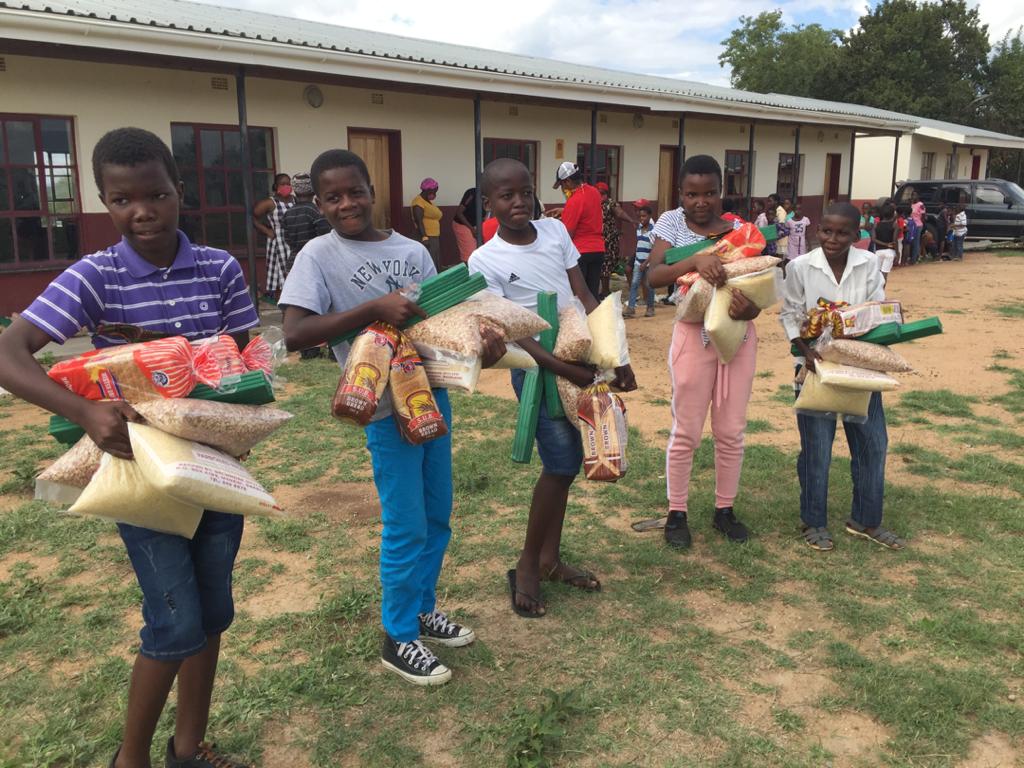
In these most unprecedented times, I write to you from our own social distancing regime here in Kelowna for help in aiding our sponsored children, women and families in eSwatini (Swaziland.)
I was in eSwatini again in late February, in part guiding a large group from Brentwood College. We were building a 3 room building at Emnotfweni Elementary School. The Covid-19 situation was warming up in North America as the Canadian students left to come to Africa and, as we all know, in the days that followed it heated up quite fast. We monitored the situation daily, 12 hourly and then it all was changing nearly hourly. Prime Minister Trudeau called all travelers back home, flights were suddenly changed for all 27 of us. By this point, schools had closed across North America, forcing some of the Brentwood students to return to such home destinations as: Germany, Australia, San Francisco and parts of Alberta, Ontario and BC.
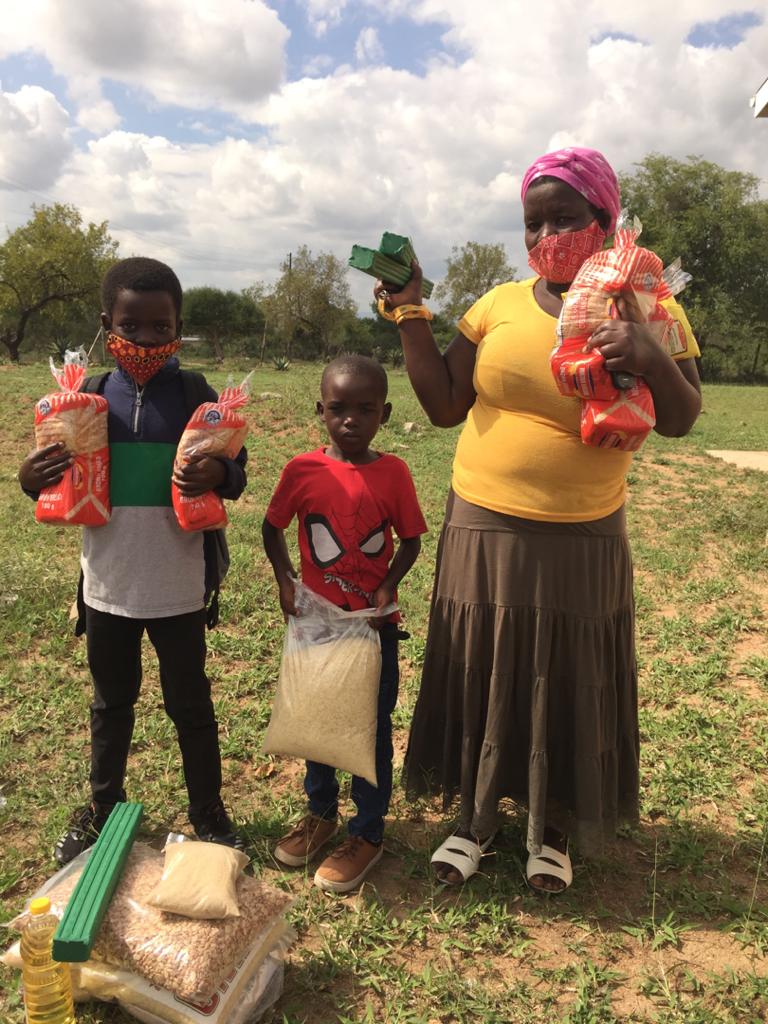
A mother with her 2 children receive their emergency response kit.
We had to abort the original timing and leave Swazi a few days early, as borders were closing between Swaziland and South Africa. We all made it home safely, everyone has quarantined for 14 days and no one has reported picking up the virus in transit.
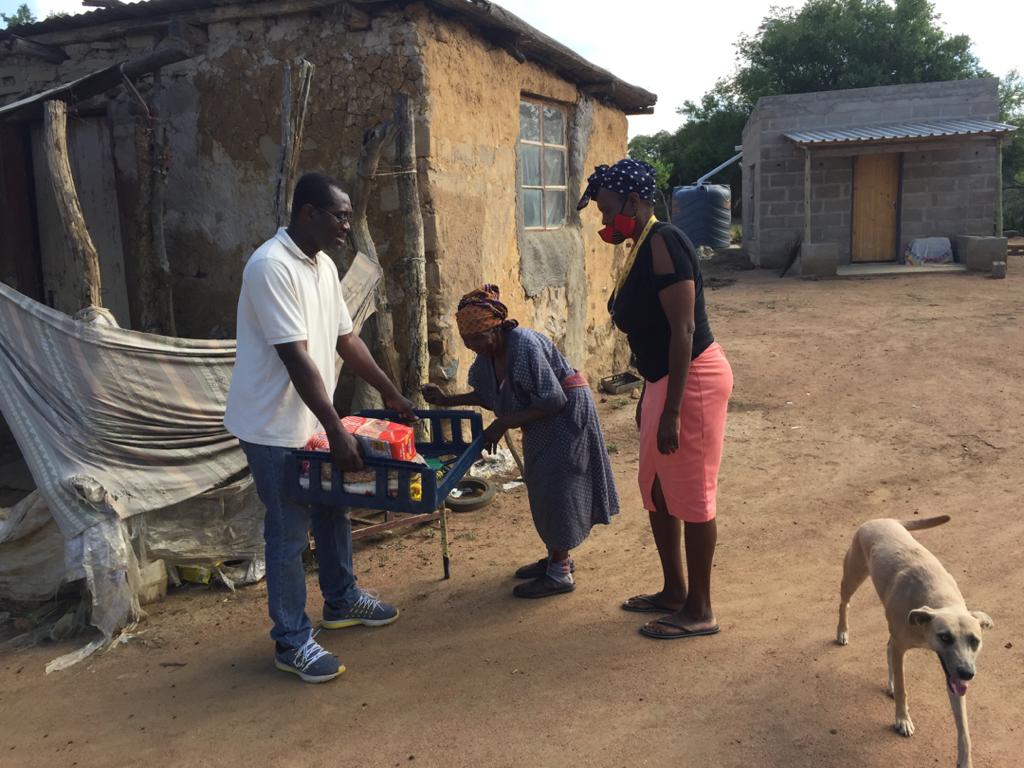
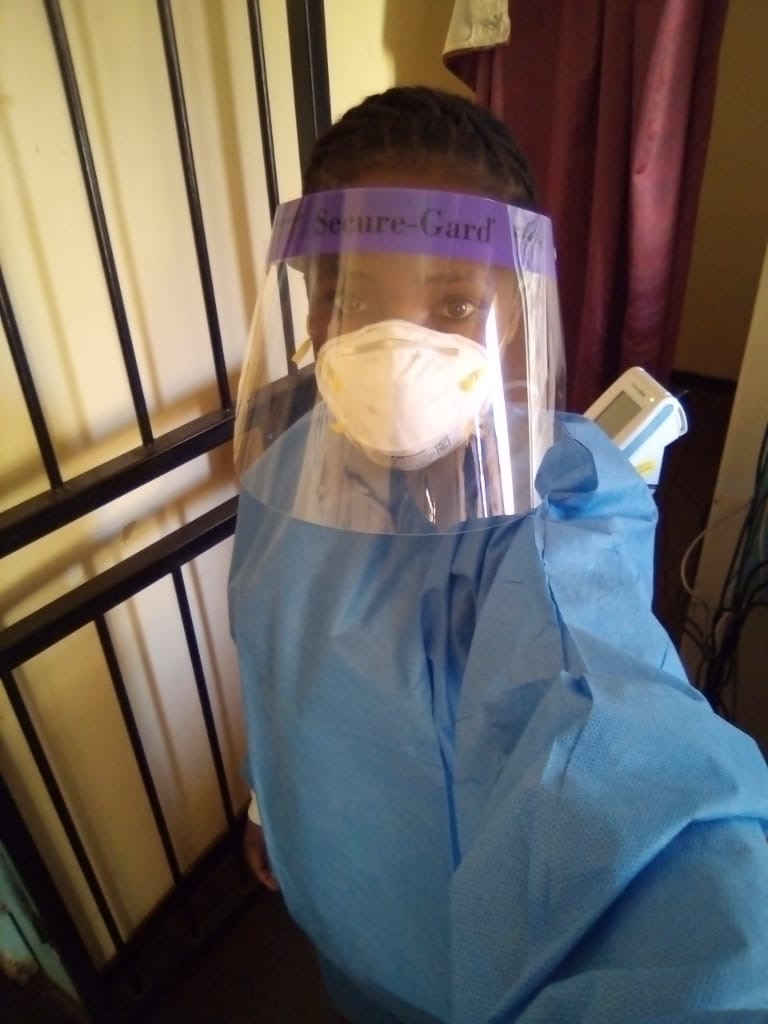 Meanwhile back eSwatini, they also initiated a lock-down to the same degree as in Canada. Schools were and do remain closed, so feeding of our kids has stopped. Only essential services are open. A number of our working grads are now out of work. There is NO social safety net and no one coming there with food for these people. Further, when they are forced to travel, they all do so on kombi’s (which are very densely packed vans run by private operators.) We also have one front line worker, Phindile (see her pic in plastic shield and mask.) Although we have another nursing student, he is not quite qualified and yet to be called into action.
Meanwhile back eSwatini, they also initiated a lock-down to the same degree as in Canada. Schools were and do remain closed, so feeding of our kids has stopped. Only essential services are open. A number of our working grads are now out of work. There is NO social safety net and no one coming there with food for these people. Further, when they are forced to travel, they all do so on kombi’s (which are very densely packed vans run by private operators.) We also have one front line worker, Phindile (see her pic in plastic shield and mask.) Although we have another nursing student, he is not quite qualified and yet to be called into action.
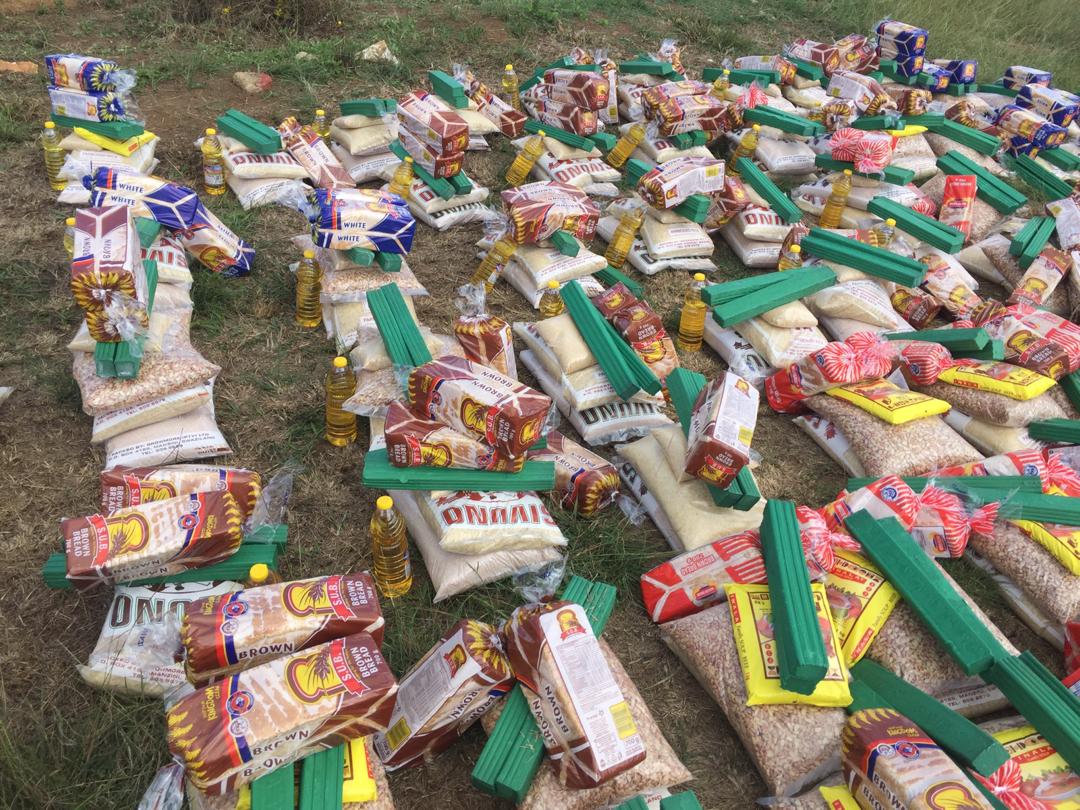
Many bags of food & soap
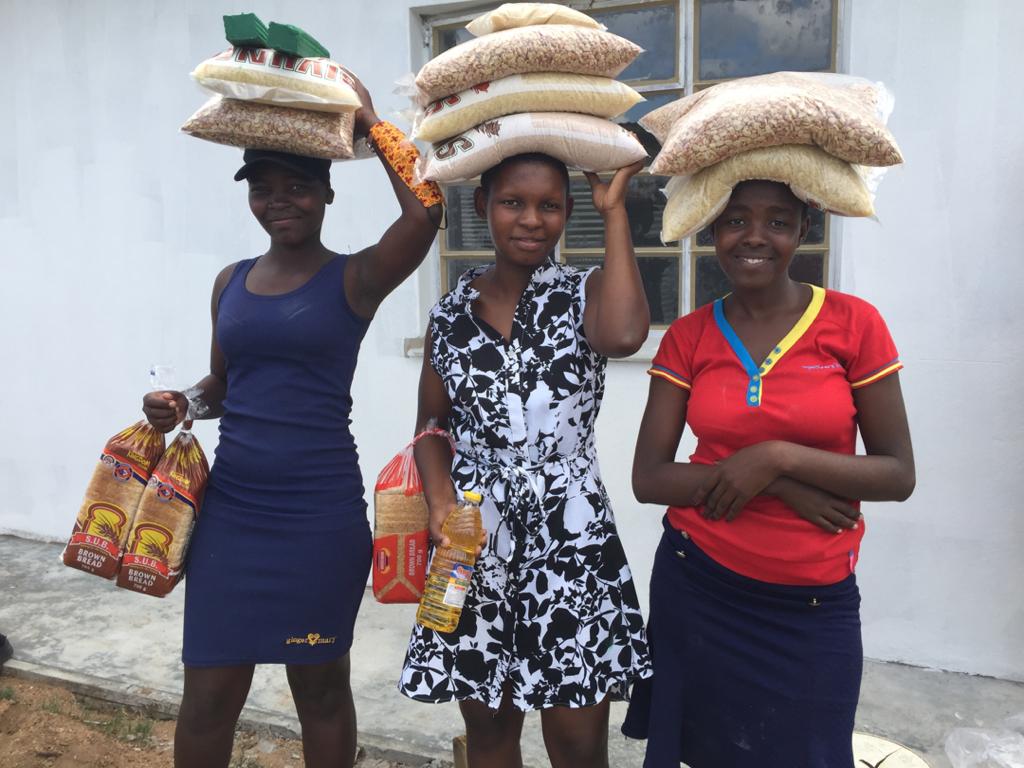
Girls carry bags on their heads
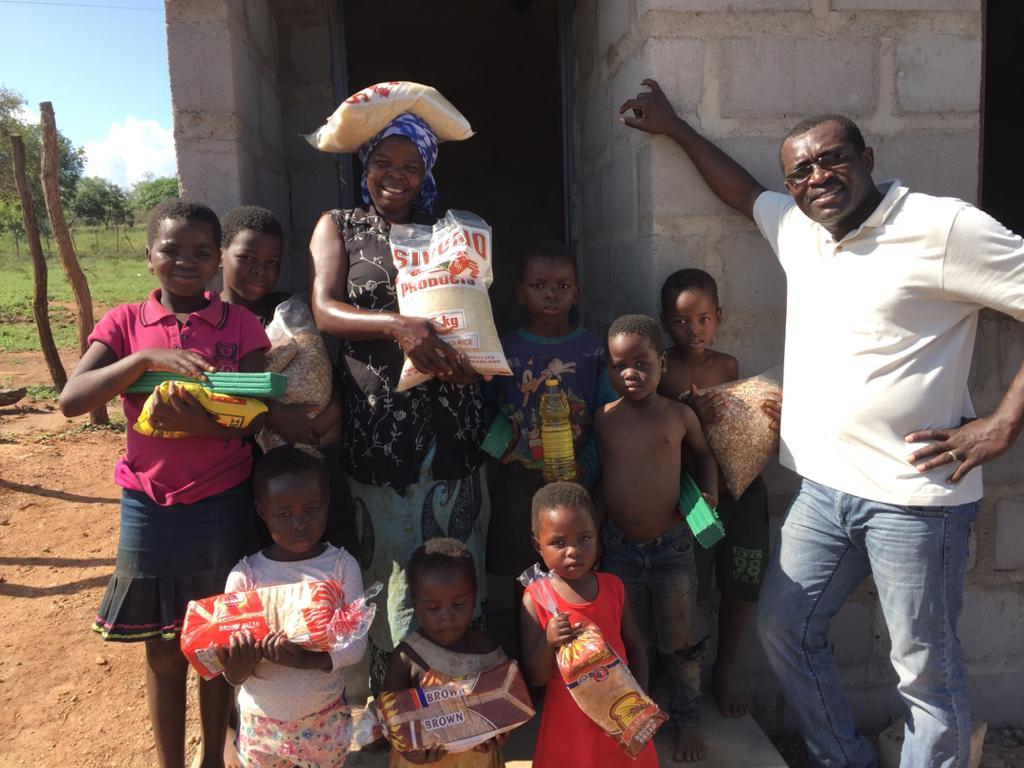
Joe delivers to a mom with 8 kids
EMERGENCY RESPONSE KITS
Joe and I have put together an emergency response kit. It includes: 10 kg of dried beans, 10 kg rice, 10 kg ground up corn, 10 kg of a mash for breakfast porridge, 1 kg sugar, a 500 ml bottle of oil, 2 long bars of green basic detergent, 2 loaves of bread and 1+ locally made cloth face masks. The cost to put this together is $35/family. We are making these available to all of our students’ families, to our graduates, to our working young adults, for a total of 110.
In addition, for our students in tertiary education as well as grades 10 and 12, who have external-international-exams to write, we are adding a data package for access to the Internet and copies of old exams to enhance their abilities to study at home. This is an unbelievable task, to think that these kids will be able to sit exams under such circumstances, so I am anxious to help this group in any way that we can.
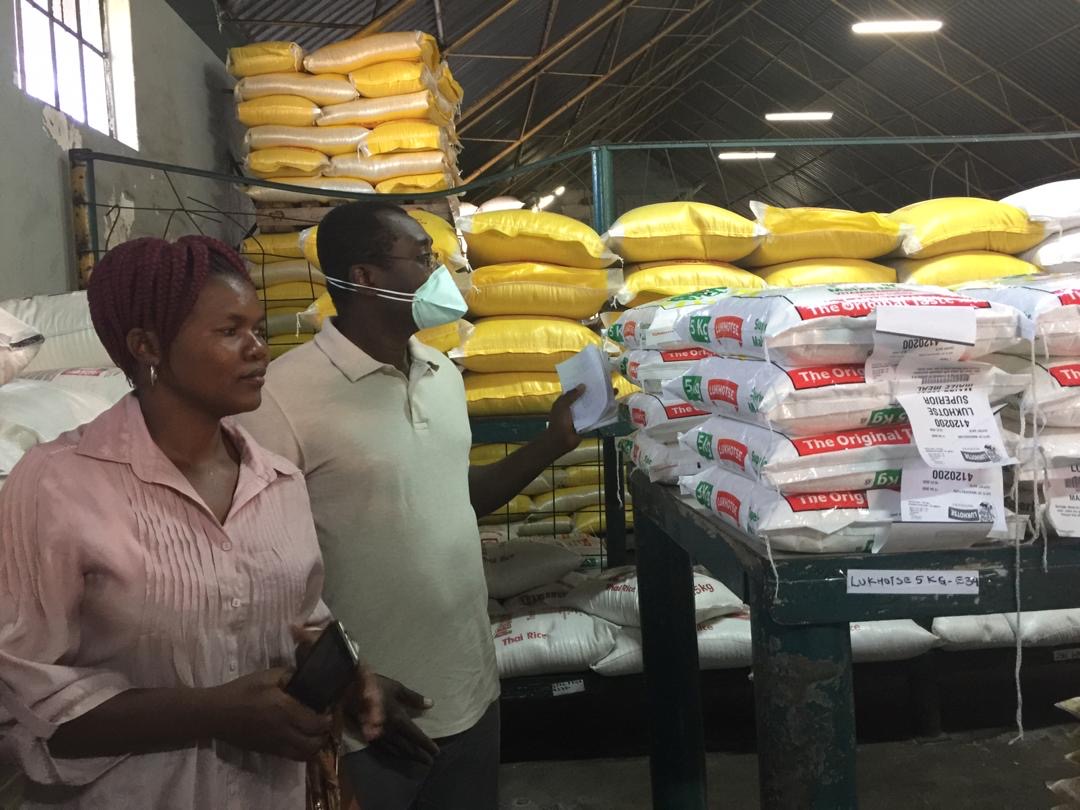
One of our graduates, Delisile, has also applied for special relief for a group of small children, where she lives who are in particularly dire situations.
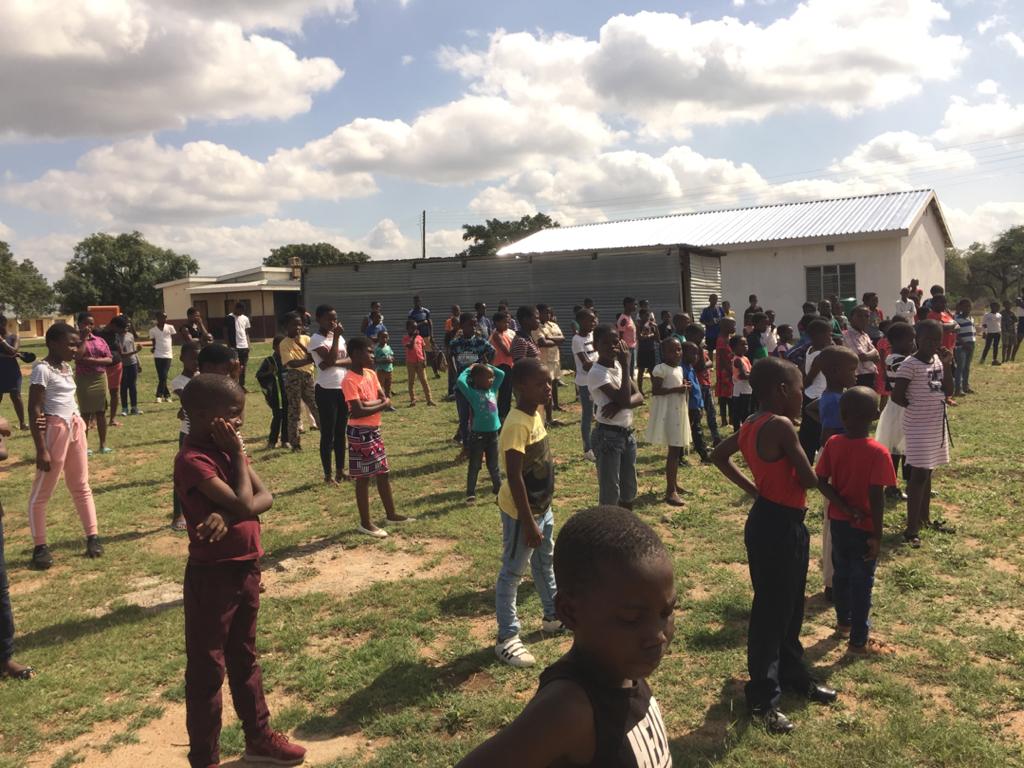
Crowd awaits at Emnotfweni while social distancing
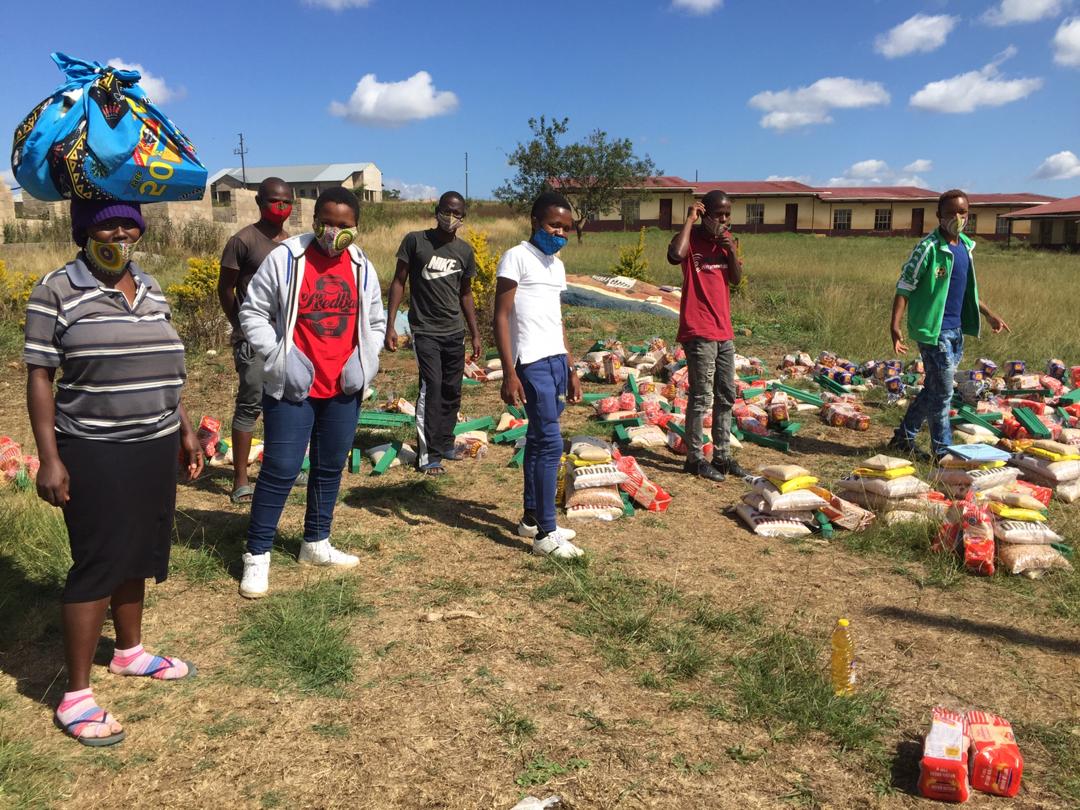
Kids wearing masks in Matjana
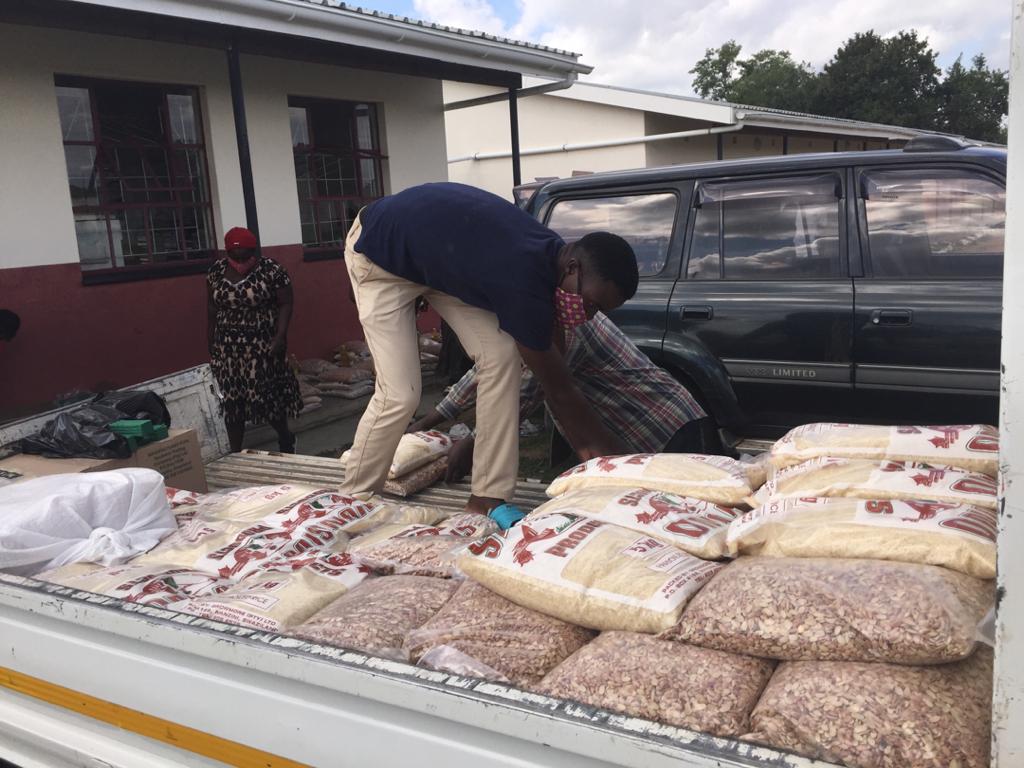
Unloading bags of beans
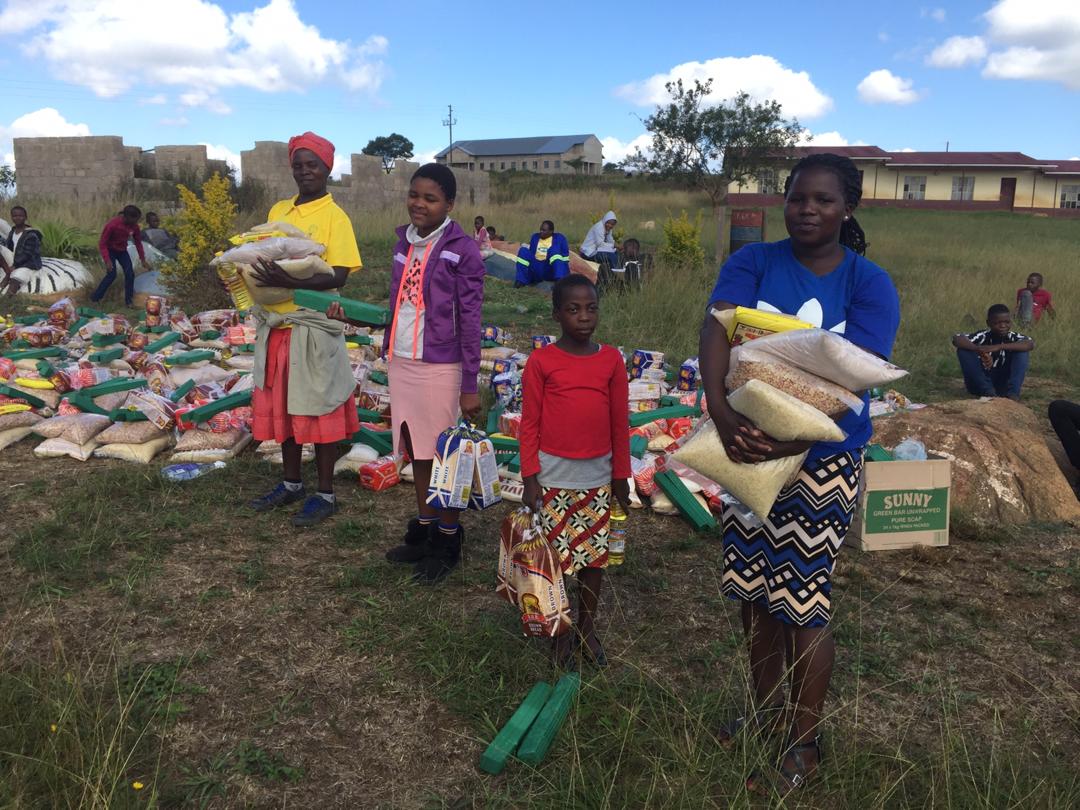
Local women
eSwatini was quite late to record its first case, so it may be low on the curve. It is a country with an abysmal health care system, and I do mean abysmal. It possesses 9 ventilators, with only 4 of them functional at last report. If this hits the seniors, as it has here, this would be a social disaster. Recall that Swaziland was one of the countries with the highest prevalence of HIV in the world, this resulted in the wiping out of a great number of young adults. Consequently, in most regions where Swazi Kids works, the households are led by a grandmother, auntie, or perhaps a solo mother. Losing any of these critical caregivers would re-double the AIDS crisis, leaving a second generation without a senior person in the home
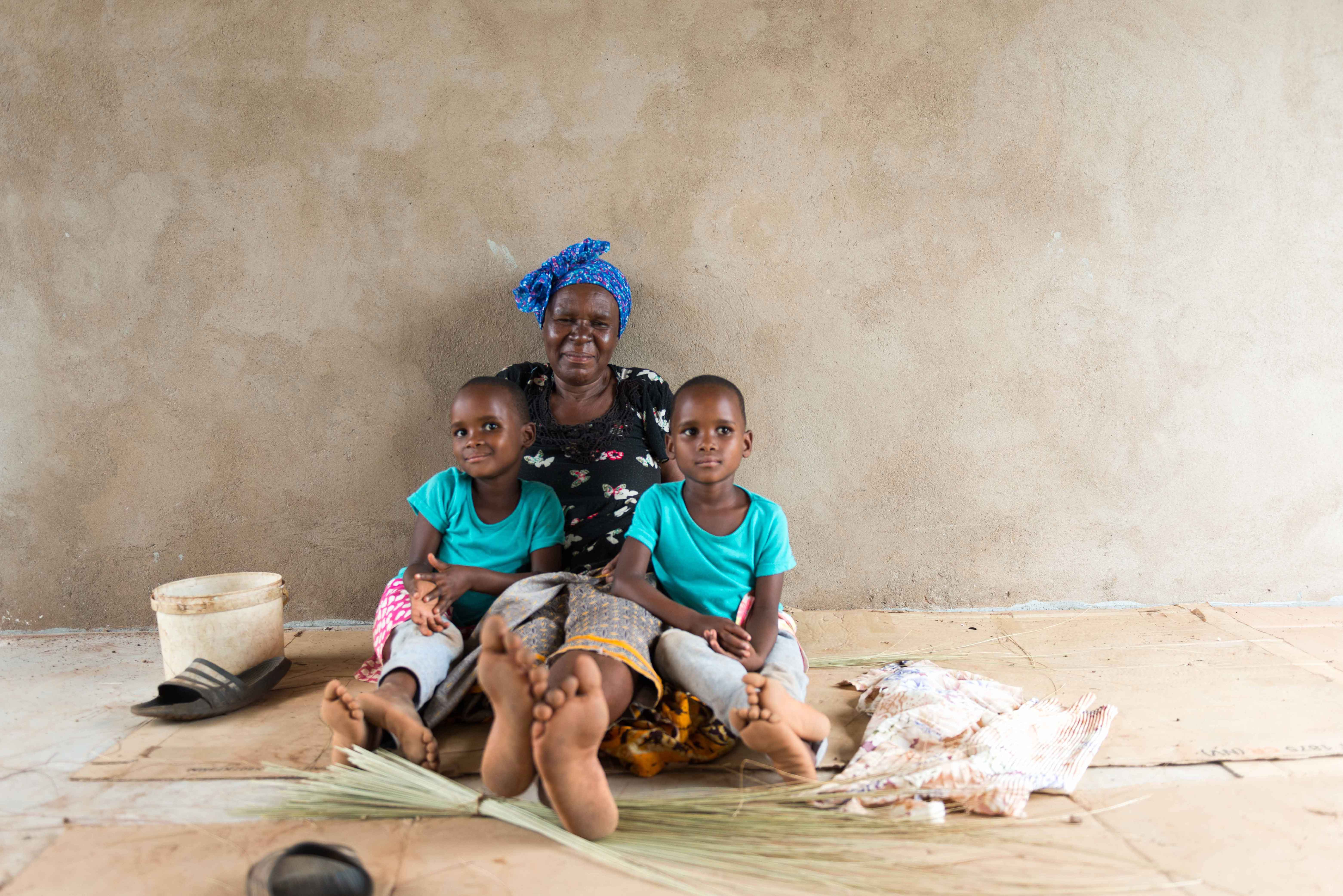
REACH OUT!
Our ongoing efforts to improve the lives of children in Swaziland require significant funds.


